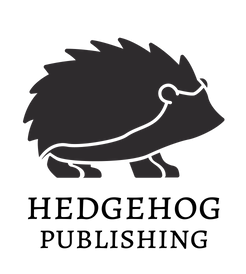Kathryn Tse-Durham: Quench
Squid Game. Hellbound. The Witcher. Handmaid’s Tale. My Name. D.P. Midnight Mass. Pig. Juvenile Justice. Move to Heaven. Dune. Nightmare Alley. The Queen’s Gambit. Maid. Itaewon Class. Spider-Man: No Way Home. The Mandalorian. Kingdom. My Mister. Signal.
You might recognize some or all of the above titles. If so, you know what I’m talking about when I say that these stories made life during this interminable pandemic a whole lot more bearable. I think storytellers are the soul of this world. Without them, what would become of us?
This is my first blog post of the year, and I want to dedicate this piece to all wonderful storytellers around the world who help make life easier to endure when the going gets tough. Truth be told, it is only recently that I finally regained headspace for creative output. I am pleased to say that I am finally making more headway on the fourth Ellanor book, and I have also been reading regularly again, which has become somewhat of a luxury now that my daughter, who just turned a year old, keeps me on my toes so much more than when I only had my son to pay attention to.
Having two children (and a furbaby) is a huge blessing. They give me immeasurable joy and make me so proud. I wouldn’t trade them for anything in the world. But because I devote much of my time to them, my writing output is inevitably and proportionately reduced. Add work and sleep deprivation to the mix (not all babies sleep through the night in the first year!), and twenty-four hours simply isn’t enough. I know, though, that everything has its season. I often find myself silently pleading: Don’t let me forget their littleness. The way her baby skin smells. The way I can make her smile radiantly just by being near. The way he still begs for me to stay ‘just one more minute’ and plants my face with kisses when I put him to bed.
I have been teaching my boy different vocabulary words, and he came across ‘quench’ in one of his chapter books. It is such an interesting-sounding word. The dictionary defines it as both a verb and a noun, the verb being: 1) Satisfy one’s thirst (by drinking); 2) Extinguishing a fire. As a noun: An act of quenching a very hot substance. When you try to explain things to a young child, you can’t get too abstract as they haven’t yet developed the understanding beyond the concrete. But words like ‘quench’ can be used in the abstract form, right? You can quench one’s thirst or desire for such intangible things as love, friendship, validation, intellectual stimulation, and spiritual growth. One day, my children will be old enough to grasp the meaning of the abstract and intangible, and that’s when life inevitably becomes more complicated for them, when they will experience the first stirrings of attraction and love, or understand what it feels to be bullied or betrayed or discriminated against.
In February, I experienced a quintessential ‘quench’ moment. I was sitting on the sofa late in the evening, winding down after another busy day, novel in hand, my furbaby nuzzling my feet. Kids and husband had gone to bed, and it was finally just me. Alone, but not lonely. And I felt enveloped by a feather lightness that I hadn’t felt in a long time, and the heavy knot in my chest was finally gone. With a happy sigh, I proceeded to sink back into the plush cushions, and started reading. Pure bliss.
You see, I hadn’t picked up a book in months. I hadn’t realized how worn out and parched my soul had become, how badly I needed to quench that parchness with a story that would lift my spirits and reignite that spark in me that I desperately need for writing. I felt an urge to revive something that had gone dormant because life can sometimes do that to you. It can tire you out, just make you bone-tired in the heart and body, beaten and battered. Mental health is not a joking matter. And this may seem like a no-brainer, but don’t you find that some blatant truths don’t truly register with you until it’s staring you right in the face? If I continued depriving myself of reading books, I would not only cease to grow as a writer, but it would stunt my growth as a person. And I would become miserable.
Shortly after Naomi was born last year, I devoured Stephen King’s Rose Madder, a gripping story about a young woman who manages to turn her life around after escaping an abusive, violent husband; and The Shawshank Redemption and Rita Hayworth, a triumphant tale about a man who was wrongly accused of a crime and for sixteen years diligently digs a tunnel through the wall of his prison cell and finally breaks free, and metes out justice in the most civilized manner. I read these books on Kindle while I was breastfeeding or pumping in the dead of night, lights dimmed in silence punctuated by my baby’s coos or occasional cries. Those stories kept me sparkling through my exhaustion.
But then life happened, and I had to take care of family who had become too unwell to take care of themselves. It consumed much of my time and energy on top of my usual work and mummy duties. And the next thing I knew, I hadn’t touched a novel or written creatively for months.
When I was having my ‘quench’ moment in February, I was holding Jeffrey Archer’s The Prodigal Daughter. I loved the book when I read it over a decade ago, and I chose to reread it because I yearned for something I couldn’t quite articulate. The book follows the life of Florentyna Rosnovski, daughter of a self-made, wealthy Polish immigrant in Chicago. Florentyna is a precocious child who blossoms under the tutelage of a dedicated English governess and eventually becomes the first woman to become the President of the United States. Reading about such a strong female protagonist was a wake-up call; it made me ponder about how I wanted to make myself useful for the rest of my life, beyond being a mother. Then in three days I devoured Jean Webster’s classic novel Daddy-Long-Legs, in which the delightful female protagonist rises above the tragedies of her childhood and finds love and her true calling as a writer. The story made me smile and laugh, and made me want to write again, too.
Such is the power of stories.
Now, I shall get back to writing my next book.
Kathryn Tse-Durham
Author of The Ellanor Chronicles
25th March 2022
This blog post is also posted on Kathryn’s Facebook Page. Visit here.

